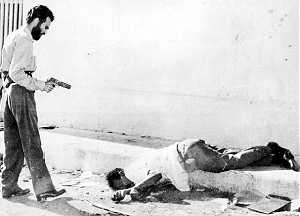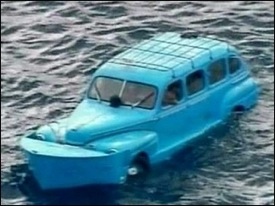WASHINGTON'S biggest enemies, from communist Cuba to North Korea, called on developing nations overnight to challenge US dominance through a revived Non-Aligned Movement labelled a Cold War relic by critics.
More than 50 heads of state and leaders from over 100 Third World countries, among them Iran and Venezuela, rejected US use of the "axis of evil" label and supported Tehran's right to nuclear technology for peaceful use.
"American imperialism is in decline. A new, bi-polar world is emerging," Venezuela's leftist President Hugo Chavez said.
"The non-aligned group has been relaunched to unite the South under its umbrella," Chavez, who will host a visit in Caracas by Iranian President Mahmoud Ahmadinejad on Sunday, told Venezuelan television from Havana.
But governments with friendly ties to Washington, among them India, Pakistan, Malaysia, Chile, Peru and Colombia, sought to steer the summit way from confrontation and finger-pointing at the United States.
"I don't regard this summit as anti-US, or for that matter anti-anybody," Malaysian Prime Minister Abdullah Ahmad Badawi told a news conference.
Cuba, which hosted the summit under the new leadership of Raul Castro because his brother and iconic revolutionary Fidel Castro was still recovering from life-threatening surgery, said the movement was reborn.
"The idea that the movement must go beyond statements and take action in international forums has gained force here. Our strength must emerge from our numbers," Cuban Foreign Minister Felipe Perez Roque. NAM nations are almost two thirds of the UN.
Leaders took turns at the podium to criticise global poverty, unfair trade practices and "arbitrary" actions by powerful nations that they complained controlled the United Nations. Some said NAM should be strengthened as an alternative.
North Korea took the opportunity to blast the United States for unilateral actions against individual countries and joined the call for a revitalized NAM to raise a united voice.
"The United States is attempting to deprive other countries of even their legitimate right to peaceful nuclear activities," North Korea's second-ranking leader, Kim Yong-nam, said.
North Korea, which defied international warnings by test-firing ballistic missiles in July, will not return to talks on ending its nuclear programs under growing US sanctions, he said.
Mr Kim, who heads North Korea's parliament, said in a speech that United States was "abusing the human rights issue" to interfere in the internal affairs of countries not allied to it.
The NAM, founded in 1961 by nations that wanted to assert their independence from both Washington and Moscow, backed Iran's right to development, research and production of nuclear energy. It also urged Iran to continue cooperating with the International Atomic Energy Agency.
Tehran has cut back on short-notice UN inspections and ignored a Security Council deadline of August 31 to stop enriching uranium, a process that could yield atomic bombs.
In one concrete result of the summit, nuclear-armed neighbours India and Pakistan agreed to resume formal peace negotiations that were frozen after the July train bombings in Mumbai.
The agreement came after Indian Prime Minister Manmohan Singh met Pakistani President Pervez Musharraf on the fringes of the summit. New Delhi had said the carnage that killed 186 people on July 11 was plotted by a Pakistan-based group of Islamic militants.
Fidel Castro, a symbol of opposition to Washington, was supposed to preside over the summit but was too ill to attend. He received UN Secretary General Kofi Annan in a dressing gown in his hospital room.
The 80-year-old leader, who took power in a revolution in 1959, ceded power temporarily to his brother Raul Castro on July 31 after undergoing surgery to stop intestinal bleeding.
Raul, 75, who lacks his brother's oratorical skills, shed his military uniform for a business suit to host the summit and read brief speeches.
Mr Chavez, with his penchant for banter and controversy, looks the natural heir to Castro, his friend and ally, as a leading US opponent. |
 (RIA Novosti) - Two Cuban leaders who took part in the 1959 revolution that brought Fidel Castro to power were dismissed earlier this month in a government reshuffle, an official publication said.
(RIA Novosti) - Two Cuban leaders who took part in the 1959 revolution that brought Fidel Castro to power were dismissed earlier this month in a government reshuffle, an official publication said.
 HAVANA -- President Raul Castro abruptly removed some of Cuba's most powerful officials Monday, putting a personal stamp on the government in the biggest shakeup since he took over from his ailing brother Fidel Castro a year ago.
HAVANA -- President Raul Castro abruptly removed some of Cuba's most powerful officials Monday, putting a personal stamp on the government in the biggest shakeup since he took over from his ailing brother Fidel Castro a year ago. HAVANA - The Cuban government is considering reforms to make migration regulations more flexible, which may include the possibility of longer stays abroad and even the elimination of exit visas, Cuban Foreign Minister
HAVANA - The Cuban government is considering reforms to make migration regulations more flexible, which may include the possibility of longer stays abroad and even the elimination of exit visas, Cuban Foreign Minister 
 FIDEL CASTRO'S successor could be one of two younger officials, dubbed "good cop" and "bad cop" by US intelligence analysts.
FIDEL CASTRO'S successor could be one of two younger officials, dubbed "good cop" and "bad cop" by US intelligence analysts. WASHINGTON (AP) - The government believes Fidel Castro's health is deteriorating and that the Cuban dictator is unlikely to live through 2007.
WASHINGTON (AP) - The government believes Fidel Castro's health is deteriorating and that the Cuban dictator is unlikely to live through 2007.  HAVANA (AP) - Cuba ordered the expulsion of a Czech diplomat Friday, accusing him of spying for the United States. Stanislav Kazecky, who was in charge of political, cultural and media affairs for the Czech embassy, was given 72 hours to leave the Caribbean island. He said he plans to leave Saturday evening.
HAVANA (AP) - Cuba ordered the expulsion of a Czech diplomat Friday, accusing him of spying for the United States. Stanislav Kazecky, who was in charge of political, cultural and media affairs for the Czech embassy, was given 72 hours to leave the Caribbean island. He said he plans to leave Saturday evening.